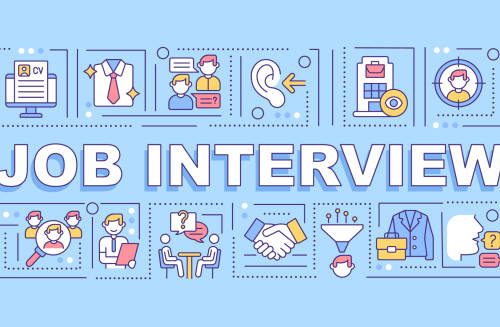We’ll be in touch
Ah, the joys of an interview!
You’d think the fact you get offered an interview for a job you are clearly somewhat interested in, you would be flattered! Excited! Optimistic! Sadly, that’s not the case and believe it or not even for drama students who are quite literally studying a degree where confidence is crucial… we are all still riddled with anxiety.

“Trust yourself. You know more than you think you do.” — Dr. Benjamin Spock
It’s prep day…
I was interviewing for the role of an events coordinator in a company called Media Contacts. Media Contacts is a ‘specialist communications recruitment agency based in London and established in 1993’. I must say, I was happy with my given job role, as events is an area I would be interested in and could see myself potentially pursing as it would work hand in hand with my passion to travel.
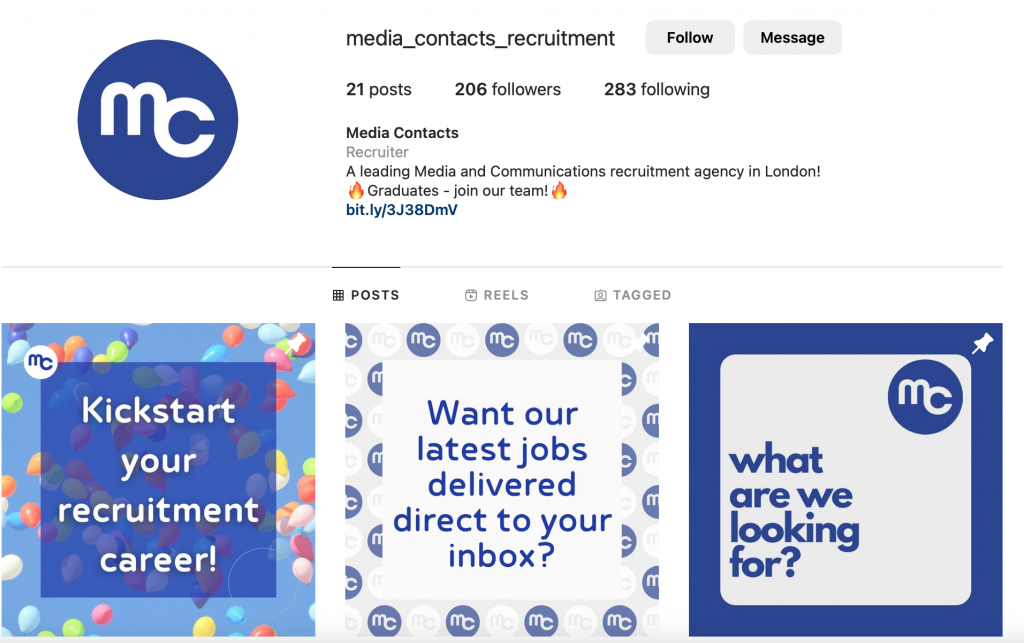
I wanted to prepare for this interview as though it was a real job I was planning on going for. I felt slightly more at ease considering it was two close friends who I have known for years interviewing me but nonetheless, I still pretended that I was being interviewed by the top dogs of the company.

The dreaded day has arrived…
Preparation did not feel like a chore as I was genuinely interested in the job role, the company and what exactly they do. To prepare I used the STAR technique to ensure I would have clear, constructed and confident answers for any questions they may throw at me. I began by researching deeply into the company, their ethos, cliental and specifically my potential job role. Having made notes about the company I felt confident to answer any scenario based questions with context about the company themselves to back me up.
Job interview statistics show that nearly 50% of the applicants wouldn’t get a job offer because of a lack of knowledge about the company where they’re applying for the job.
(Lazic, 2021)
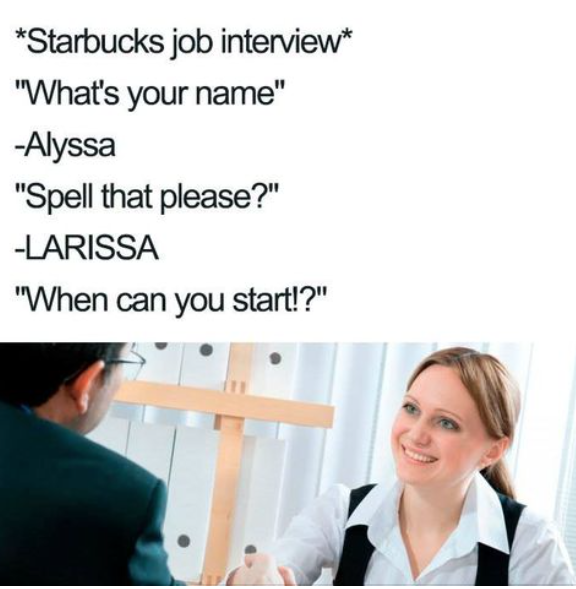
How did it go you ask?
Well, I will be using the Gibbs reflective model to evaluate before during and after my interview simulation experience. As with other models, ‘Gibbs begins with an outline of the experience being reflected, encouraging us to focus on our feelings about the experience, both during it an after’.
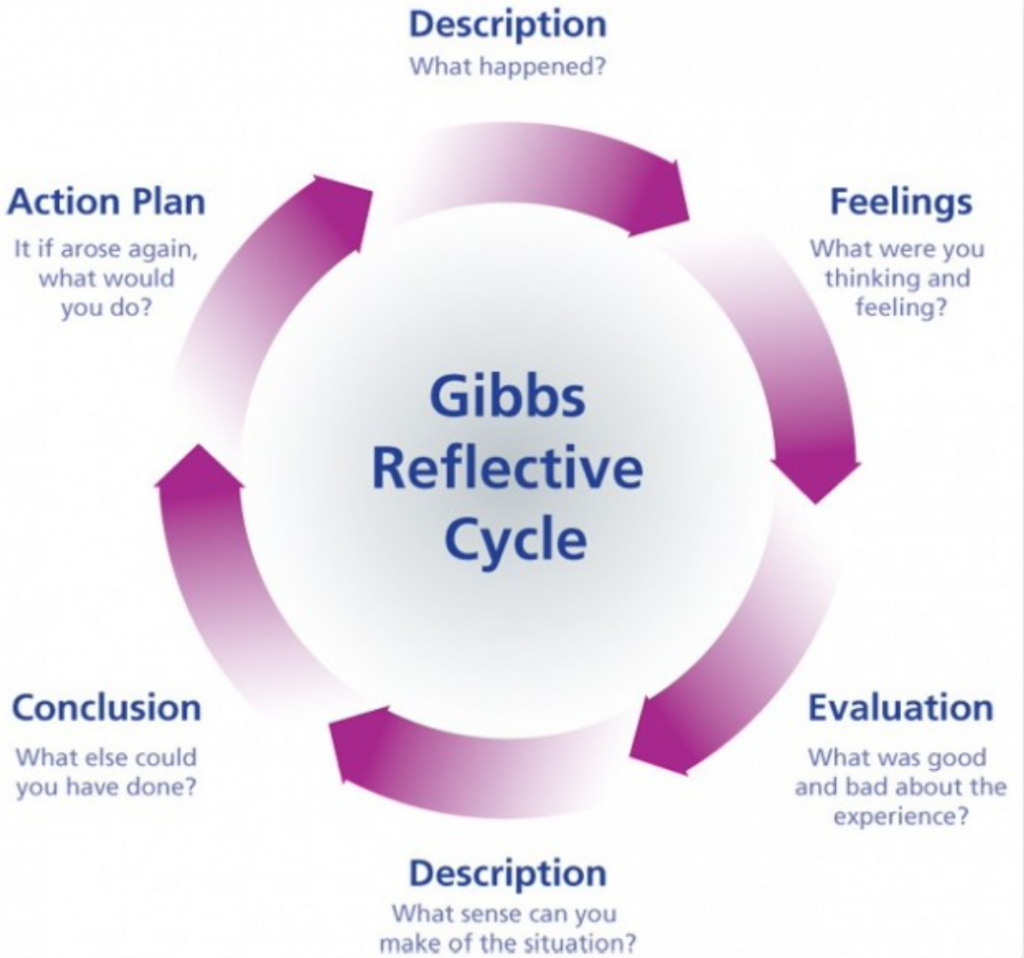
33% of bosses know within the first 90 seconds of an interview whether they will hire someone.
(View Archive, 2014)
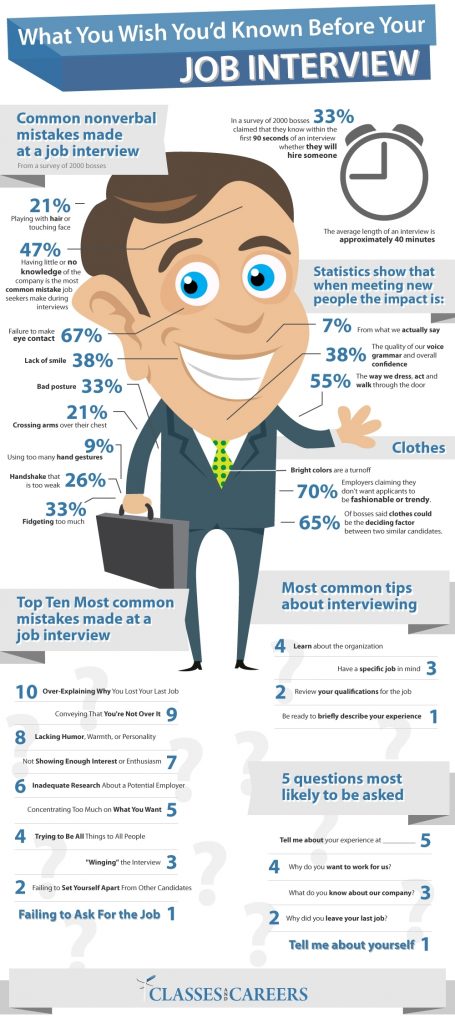
Description:
We were put into groups where we had to come up with questions to ask one another for a specific job role already assigned. I was in a group of three where we took five minutes to prepare, ten minutes for each interview and five minutes at the end for feedback.
Feelings
I felt excited about the experience as I was interested in the job role and wanted to make the most out of the opportunity. Naturally there were some nerves as interviews no matter who they or with or what they are for always have some level of pressure around them. I am lucky I have been through many interviews in my life that I know usually what to expect. I also felt more at ease than what I would in a real interview as it was in a comfortable environment with people I am already friendly with.
Evaluation
The simulated interview went well and I felt fairly confident with my answers. I do believe this would be because I prepared accordingly as well as being interviewed by my friends where there is no judgement compared to what a real interview would be like with strangers where they are there to judge if you are fit for the role. I was able to give specific facts about Media Contacts such as, their objectives, their clientele and any previous work they have done. I was able to relate my own experiences with what they were looking for as I had researched efficiently about who they are and what they do. I felt this showed I was keen about working for the company. However, despite this, I know I was not as professional as what I should have been throughout the interview given the circumstances. This leads me to believe that I definitely could have got more out of the experience if I took it more seriously and perhaps was not in a group with friends.
Analysis
Upon reflection it went well and was an enjoyable experience as I had put the work in to prepare for the interview before hand. The variety of questions were good as we spread evenly competency, strength based and autobiographical questions to ensure everyone was asked a variety of questions to show off our skills, get to know us as a person and hit every point needed to be made. I also made the effort to look at their social media accounts and videos on youtube to learn as much as possible to see how I could fit into the company
Conclusion and Action plan
In conclusion the simulated interview process has highlighted to me the importance of preparation for not only job interviews but basically everything in life. Like they all say, ‘fail to prepare, prepare to fail’. I can now take away certain reflective models and interview preparation tactics such as STAR, and use them for my future career as well as feeling excited for more opportunity to show my new interview skills.

Well, glad that’s over! Pints?
I hope these job interview memes throughout my blog have provided at least some level of entertainment. You never know, I could appear in the next one.
Bibliography
Contacts, M. (n.d.). Communications Recruitment Agency: About Us. [online] Media Contacts. Available at: https://www.media-contacts.co.uk/communications-recruitment-agency/ [Accessed 20 Feb. 2023].
Lazic, M. (2021). 30 Mind-Blowing Interview Statistics to Get You Going in 2021. [online] legaljobs.io. Available at: https://legaljobs.io/blog/interview-statistics/.
Morgan, A. (2022). Gibbs reflective cycle – How to learn from experience and become a better leader. [online] TSW Training. Available at: https://www.tsw.co.uk/blog/leadership-and-management/gibbs-reflective-cycle/.
The University of Edinburgh (2020). Gibbs’ Reflective Cycle. [online] The University of Edinburgh. Available at: https://www.ed.ac.uk/reflection/reflectors-toolkit/reflecting-on-experience/gibbs-reflective-cycle.
View Archive (2014). How Interviewers Know When to Hire You in 90 Seconds. [online] Undercover Recruiter. Available at: https://theundercoverrecruiter.com/infographic-how-interviewers-know-when-hire-you-90-seconds/ [Accessed 22 Feb. 2020].
What I never knew about Interviews
Mastering Preparation
You May Also Like

Job Interviews: Selling Yourself For A Pay Cheque
24 February 2023
To Be Or Not To Be – That Is The Interview Question
23 February 2023